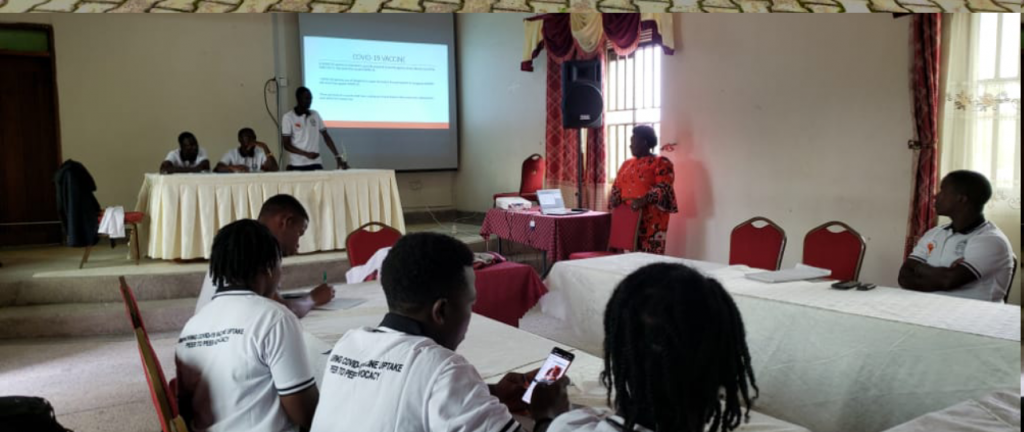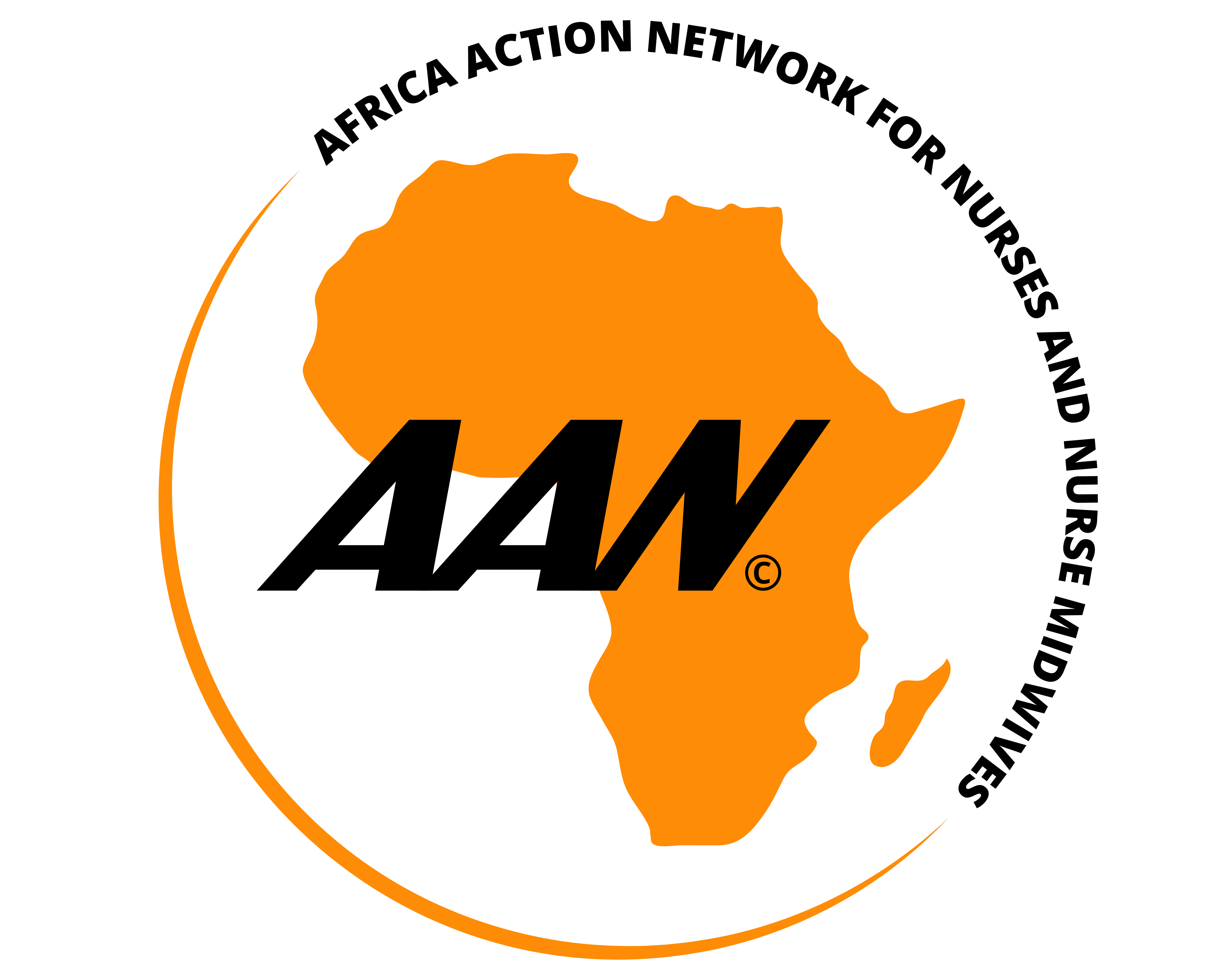‘Nursing students’ ‘Peer to peer advocacy for COVID vaccination among high school students in Uganda
In response to the Covid-19 pandemic, the Government of Uganda through the Ministry of Health organized approved vaccines for the population to prevent serious illness and control the Covid-19 pandemic. However, during the campaigns, it was realized that teenagers required more support in terms of information sharing about Covid-19 as a disease to clear the myths often spread via social media about vaccination against Covid-19. It is against this background that the Africa Action Network for Nurses and Midwives (AAN) realized the need to increase the uptake of Covid-19 vaccination among teenagers and partnered with Kampala International University Uganda National Association of Student Nurses and Midwives (KIU-UNASNM) to counsel and educate fellow teenagers about Covid-19 as a disease and to clear the myths so that could be increased uptake of vaccination services in the young generation.
The project titled ‘Improving Vaccination Awareness and Covid-19 Vaccine Uptake through Peer-to-Peer Advocacy’ aimed to ensure that all persons aged 10-17 years are vaccinated against COVID-19 in the three selected schools in Bushenyi District i.e. Ruyonza Secondary, PLUS TWO High School, and St Kagwa Boys Secondary School. The objectives were to sensitize and inform teenagers on the importance of immunization for public health, including Covid-19 vaccination, within selected schools, raising awareness and demand for Covid-19 vaccines, to demystify myths and misinformation regarding vaccines circulating via social media among the young generation, and to orient teenagers about adverse events following immunization of Covid-19 and how and where to timely report in case such adverse events occurred.
To achieve these objectives, 11 KIU nursing students were trained to equip them with knowledge about immunization, Covid-19 disease, and the types of Covid vaccines available. A meeting was held with head teachers in the four selected/targeted schools, leaflets were printed and distributed indicating facts about Covid-19 disease and vaccines, and a social media campaign was launched. Teenagers in target schools were sensitized about vaccination/immunization and Covid-19 vaccines in particular. A baseline survey was conducted in selected schools to determine basic vaccine knowledge prior to advocacy interventions, and district health officials were worked with to vaccinate students in selected schools. Student ambassadors were established in each school as contact persons to continue with advocacy.


A total of 289 participants were enrolled in this study. More than half (55.4%) of the participants were male, and the majority (63.0%) of participants were 13 to 16 years of age with (mean ± SD (16.3±1.88)). Most (136/256) of the participants had excellent knowledge before the intervention, and this further increased (191/256) post-intervention.
The overall mean scores for pre-intervention for overall knowledge score and all the other questions were lower as compared to the post-intervention mean score except for the question about vaccination programs help people stay healthy. Paired T-test results for the overall pre- and post-intervention showed that there was a statistically significant difference in the mean scores before and after the intervention (p < 0.0001).
Through this project, nursing students played a crucial role in peer-to-peer advocacy for Covid-19 vaccination among high school students in Uganda. The success of the project was reflected in the increase in knowledge and demand for Covid-19 vaccines among the participants. The project also highlights the importance of community-based interventions in achieving public health goals, especially during pandemics such as Covid-19.
In conclusion, the project ‘Improving Vaccination Awareness and Covid-19 Vaccine Uptake through Peer-to-Peer Education’ has been a crucial initiative that aimed to improve vaccination awareness and COVID-19 vaccine uptake through peer-to-peer education. The project has identified several challenges that hindered the uptake of COVID-19 vaccines, such as misinformation, mistrust, and lack of access to accurate information. To address these challenges, the project has utilized various approaches, including community engagement, social media campaigns, and educational webinars.
The project’s impact has been significant, with a notable increase in vaccination awareness and uptake observed within the targeted communities. The project’s success can be attributed to its emphasis on peer-to-peer education, which has allowed for a more personal and relatable approach to disseminating information. Additionally, the project’s use of multiple channels and strategies has ensured that accurate information reaches a wide audience.
Moving forward, it is essential to continue efforts to improve vaccination awareness and uptake, not only for COVID-19 but for other preventable diseases as well. The project’s approach of peer-to-peer education can serve as a model for future initiatives and can be scaled up to reach more communities. It is crucial to build on the successes of this project and continue to work towards a world where everyone has access to accurate information and vaccines to protect their health.
